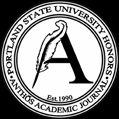Subjects
Childhood -- Social aspects, Children and adults -- Psychological aspects, Identity, Childhood development
Abstract
Across the globe it is clear that children are a marginalized group. Children are not allowed to vote or be taken seriously in political circles (Sharpe, 2015), are kept away from public spaces (Valentine 2004), navigate inhospitable working conditions (Gamlin et. al., 2015), and are rapidly losing the time and space to foster their own child culture (Woolley and Griffin, 2014). Adults continue to institutionalize children’s play and restrict children’s access to public space. This serves to reinforce children’s position as second-class citizens. A mounting body of work shows that children are suffering in their physical and social development due to this continued marginalization (Clements, 2004; Corsaro, 1997; Evaldsson, 1998; Goodwin, 1990; Staempfli, 2008). This naturalized and troubling dynamic between children and adults needs to be critically examined in order to foster a healthy, socially just society.
Drawing on literature from Corsaro, Valentine, and Goodwin I argue that “child” is the dominant identity for youth; their race, gender, and class following behind as important but secondary, intersecting identities. All children are oppressed. Different children experience this oppression to greater and lesser degrees. I argue that we must examine the social construct of childhood now, as societal ideals about children’s rights, safety, and use of public space are rapidly evolving. A critical analysis of the state of childhood, which acknowledges the deeply entrenched oppression of children, sets the stage for a potential social transformation in which adult society can empower youth. Children already have legitimate, creative, and valid contributions to make to the societies they are a part of. By examining the social structures that serve to suffocate these contributions we can reconstruct the meaning of childhood. Adult culture can acknowledge children’s voices and rights, thereby making childhood a time of empowerment rather than oppression.
DOI
10.15760/anthos.2017.10
Creative Commons License

This work is licensed under a Creative Commons Attribution-NonCommercial-Share Alike 4.0 International License.
Persistent Identifier
http://archives.pdx.edu/ds/psu/21260
Recommended Citation
Biddle, Sophia K.
(2017)
"Social Constructions of Childhood: From Not-Yet-Adults to People in Their Own Right,"
Anthós:
Vol. 8:
Iss.
1, Article 3.
https://doi.org/10.15760/anthos.2017.10
